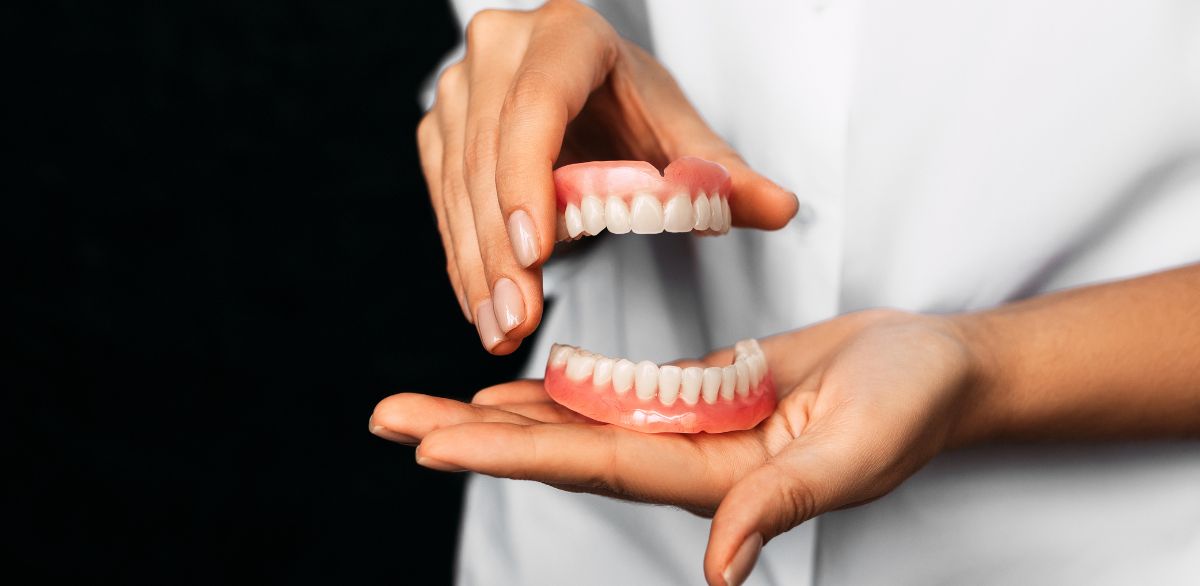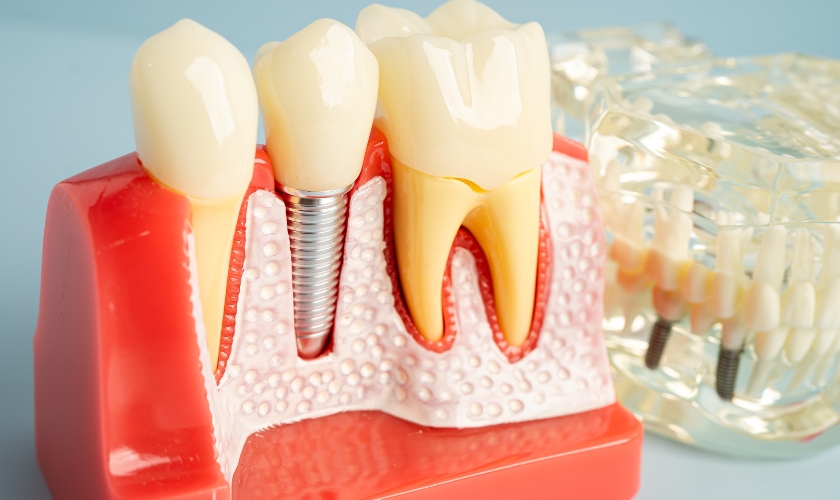
Whether you have missing teeth due to tooth decay, gum disease, dental trauma, or genetics, it’s important to replace a missing tooth to prevent the consequences of bone loss.
Tooth loss increases your risk of losing more teeth in the future, and not all tooth replacements are made equal. In this blog from A Street Dental, we’re exploring your three tooth replacement options – dental implants, dentures, and dental bridges.
Why Is It Important to Replace Your Missing Teeth?
Failure to fill the space where a tooth used to be will result in bone loss, shifting teeth, changes to your bite, and changes in your facial structure. This can end up making you look older, creating orthodontic problems, and leaving no space for a replacement in the future.
You may also develop TMJ disorder, resulting in significant pain. Besides these consequences of bone loss, you’ll also find it’s more difficult to chew and speak and you may feel insecure about gaps in your smile. The best way to mitigate the consequences of tooth loss is to replace the tooth as soon as possible.
Dental Implants
There’s no way around it – dental implants are the highest quality tooth replacement for several reasons. This is the only restoration that will preserve the jaw bone to prevent bone loss. Other restorations only restore the crown, but dental implants also restore the tooth’s root by implanting a titanium post into the jawbone that will fuse with it through osseointegration.
By restoring the tooth’s root, the jawbone is stimulated when you chew, replenishing the cells necessary to generate new bone. This also securely holds the tooth in place so you don’t have to worry about embarrassing shifting teeth.
They look and feel incredibly natural, are low maintenance, and can last for a lifetime. You’ll even be free to eat a restriction-free diet. However, dental implants require healthy gums and adequate jawbone density and are also much more expensive than other restorations. They are only suitable for replacing single teeth unless you opt for an implant-supported denture.
Dentures
Depending on the extent of your tooth loss, you will choose between a partial or full denture. A partial denture only replaces a few missing teeth but can fill in gaps on both sides of the mouth.
A full denture is only for patients who are missing most of their teeth, as it requires the extraction of all the remaining teeth in the mouth. Dentures don’t restore tooth roots but add support to the facial structure by filling in gaps and assisting with chewing and enunciating.
Dentures look very natural – artificial teeth are made of porcelain and are attached to a plastic gum-colored base. While full dentures are held in place through natural suction, partials clip onto metal clasps that are placed around the surrounding teeth. This is a much more affordable and minimally invasive option.
Dental Bridges
A dental bridge is like a fixed partial denture without metal clasps. You can replace between 1-3 consecutive missing teeth with a bridge, but cannot replace missing teeth on both sides of the mouth.
Two abutment teeth on either side of the gap are filed down and dental crowns are placed over them. A pontic tooth is connected to these crowns, completing the bridge and filling in the gap. A dental bridge is cemented into place and can only be removed by your dentist.
Which Option Is Right for Me?
Dental implants are a superior replacement option for missing teeth, but are only suitable for very minimal tooth loss, as they only replace a single tooth. If you’re looking to prevent the consequences of bone loss and want your tooth fully restored down to the root, this is a great option.
However, if you’re not a good candidate for implants because you have inadequate jawbone or too much tooth loss, a denture is a very affordable, convenient, and less invasive process. Most people are candidates for dentures, whether they’re missing a few or all of their teeth.
Dental bridges are recommended for patients missing between 1-3 consecutive teeth who want artificial teeth that are not removable. This prevents teeth shifting and allows you to speak more clearly.
Expert Tooth Restoration At A Street Dental
The best way to determine which replacement option is right for you is to come in for a consultation with Dr. Blake Anderson. We’ll assess your teeth and take x-rays to determine which restoration is most suitable for you. Contact us at A Street Dental today to schedule an appointment.



